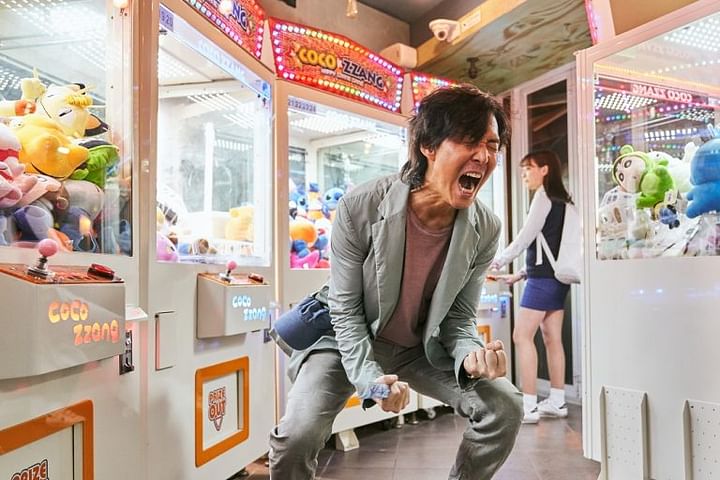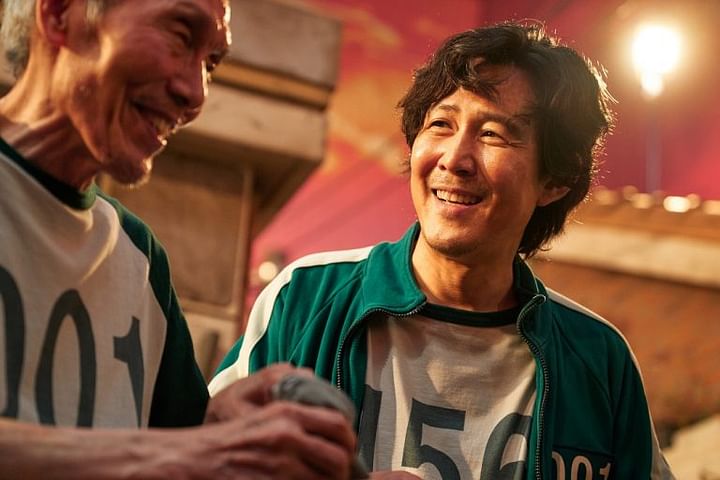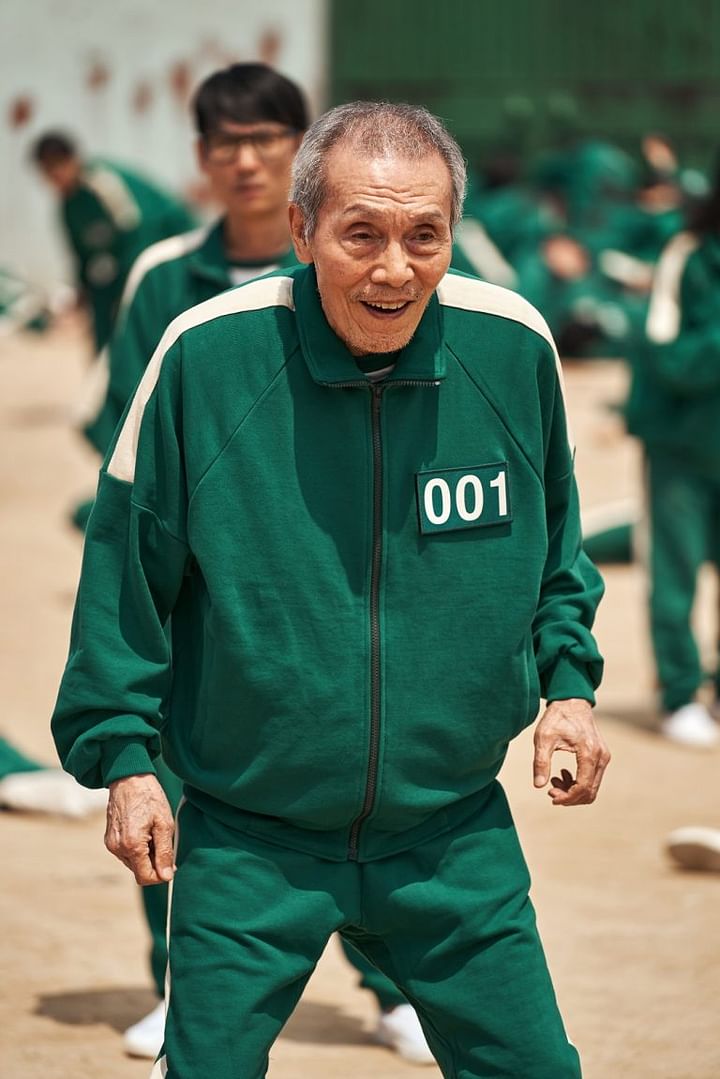8 Life Lessons From Squid Game To Remember

Unless you’ve been living in a shell, you’d have heard of Squid Game or watched the Netflix thriller series since it was released in Singapore on Sept 17.
Since its release, Squid Game has seen global success, topping Netflix charts for weeks, catapulting the cast members to fame, spawning tons of Internet memes, TikTok challenges and even merch.
On the surface, Squid Game is about violence and wicked entertainment, but beyond the chilling scenes, plot twists and loopholes (seriously, how could there be no one who successfully alerted the police about this brutal game?), Squid Game offers up plenty of moments for contemplation and life lessons throughout the nine episodes.
Here are the best ones we gleaned, to justify the 485 minutes – or 8 hours – of screen time.
Life lesson 1: Don’t spend beyond your means

In the show: Overspending, addiction, fraud and other poor decisions led to 456 players joining Squid Game out of desperation, without knowing its deadly consequences. In the case of player 456 Seong Gi-hun (played by Lee Jung-jae), he joined the game in an attempt to pay off his debts and be able to support his mother’s hospital bills and his daughter. For the sake of money, he toiled through nerve-wracking games and encounters that saw him at the brink of death many times.
READ ALSO » 10 Most Expensive Video Game Ever Made
In real life: Overspending, or spending beyond your means, has serious repercussions. When you chalk up expenditure on your credit card that you’re unable to pay off immediately, that can lead to debt accumulation in a matter of months, and not to mention, the growing interest you have to eventually pay off. Your credit score rating will take a hit too, affecting your ability to get home/car loans, and even your employability. These consequences are likely to lead to mental health issues such as depression and anxiety, which can snowball into more health problems. So remember to always take stock of your expenses, and never spend more than what you have.
Life lesson 2: Invest in legit sources
In the show: Squid Game had 456 players toughing it out to win the prize money of 45.6 billion won over six games in six days. The rule that wasn’t communicated to the players before they signed on the dotted line? The losers of each game will be killed. Another dark aspect of the game: Players could improve their chances of getting through each game by killing other players.
In real life: If something sounds too good to be true, it probably is. Ever heard your older folks say “nothing is free in this world”? This is proven by the rising number of scams in Singapore. Even if you win easy money, such as through gambling, that winning streak wouldn’t last long, and will easily lead to addiction. Don’t believe in shortcuts when it comes to finances, no matter how tempting they sound – not even 45.6 billion won (equivalent to S$51.6 million). To grow your money, look at proper investment plans offered by banks and insurance companies, and don’t hesitate to get advice from certified financial experts.
Life lesson 3: Trust no one, unless you have no choice

In the show: This adage was exemplified by North Korean defector Kang Sae-Byeok (played by breakout star Jung Ho-yeon) from the get-go, through her extreme wariness towards everyone in the game. She remained distrustful of her team members, even as the game went on. She said: “You don’t trust people because they are trustworthy. You do it because you have nothing else to rely on.” The importance of trusting no one was emphasised as the show went on, through the life and death consequences that resulted whenever someone let down his/her guard. Remember how foreign worker Ali lost the game because he naively believed that his partner Sang-woo would find a way to save them both?
In real life: We get it – trust is essential to build strong relationships. But besides relationships with your loved ones and perhaps your co-workers, there’s hardly any reason to trust anyone you barely know, especially people who are looking to gain something from you, such as salespeople, telemarketers or worse, scammers
Life lesson 4: It pays to be kind

In the show: Seong Gi-hun, who started out being reckless and ruthless, finds his humanity throughout the games by repeatedly practising kindness towards everyone – distrustful Kang Sae-Byeok, self-preserving Cho Sang-woo, feeble Oh Il-nam, and even crafty Jang Deok-su. And, who can forget how he graciously let another player take the 01 position in the glass bridge game when the player begged for it? Unknowingly, that move turned out to be a lifesaver for Gi-hun.
In real life: Kindness begets kindness. Being kind, generous and helpful may not confer you quantifiable benefits, but there are intangible pay-offs, such as joy, contentment and purpose. And if you believe in karma, kindness is surely the way to go.
Life lesson 5: Keep your promises

READ ALSO » Top 10 Android Phones With Best Battery Life
In the show: Two examples stood out. One, when gangster Jang Deok-su promised to protect fraudster Han Mi-nyeo and broke his promise soon after, Mi-nyeo spends the rest of her time plotting revenge. She ended up killing him and herself during the glass bridge game. Two, the budding friendship between Gi-hun and Il-nam was examined during the marbles game when they paired up to play. Despite knowing that Gi-hun had tricked him during the game, Il-nam decided to let him win, reminding Gi-hun that they are each other’s “gganbu” (trusted friend), as they promised before the game started.
In real life: There are real consequences to breaking promises. At best, you’ll lose other people’s trust in you. At worst, you might lose relationships, deals, jobs and your reputation. Long story short: Be a man of your word, and don’t make promises you can’t keep
Life lesson 6: You don’t always have to follow rules and conventions

In the show: Deok-su’s manipulative character was on full display during the glass bridge game, when he forced a player behind him to go first. Realising that he didn’t have to go with the order of numbers assigned to each player, he cleverly used that to his advantage. Clearly, there were no rules in Squid Game that forbade the players from killing each other. That meant that the players were free to come up with their own survival strategies as long as each game’s rules were followed.
In real life: Selfish motivations and merciless killing aside, we can afford to take a leaf from Deok-su’s book and think more creatively in life. Some rules, such as the Covid safe management measures, we should definitely play by. But some others, such as ideological constructs and social norms, can be bent and broken for our own benefit where circumstances allow, as long as our conscience is clear and no harm is done to others.
Life lesson 7: Money is not everything

In the show: When you’re down and out, and in debt, money is everything — we saw how savagely the Squid Game players fought to stay alive and win the game. However, money can’t buy you happiness and purpose in life. As the old man Il-nam wisely put it in the last episode: “Do you know what someone with no money has in common with someone with too much money? Living is no fun for them.”
In real life: Good for you if you have set financial goals for yourself. But those goals should not be the only reason for your existence. Beyond financial independence and retirement savings, we should strive to search for our deeper purpose in life, or ikigai – that motivating force that gives us a reason for living, and keeps us grounded and going even without monetary gains.
Life lesson 8: Life is short - have some fun

In the show: Ultra-rich Il-nam had a void in his life, so he created Squid Game for his entertainment, and to put humanity to the test. He also took part in the games, because “doing something is always more fun than watching”. Presumably, after indulging in his child at heart, he died without regrets.
In real life: Don’t forget to set aside time for play and relaxation, no matter how busy you are. If you’ve been thinking about starting a hobby, picking up a skill, or revisiting an activity you enjoyed, prioritise your interests enough to act on them. There’s no “best time” to do something. You never know when time is up.
